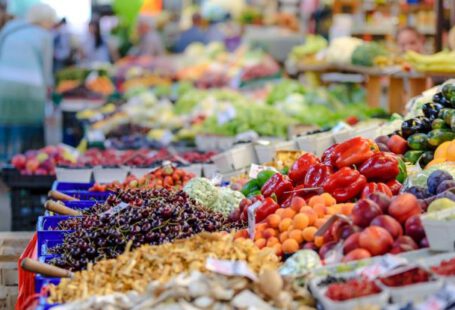In today’s world where sustainability and eco-consciousness are becoming increasingly important, many individuals are seeking ways to reduce their waste and live a more environmentally friendly lifestyle. One area where this can have a significant impact is in the kitchen, particularly with regards to pantry items. Can you have a waste-free pantry, and if so, how can you achieve it?
The concept of a waste-free pantry involves minimizing the amount of single-use packaging and food waste that is generated from the items stored in your pantry. By making conscious choices and adopting a few simple practices, you can work towards creating a pantry that is not only more sustainable but also better for your health and the environment.
**Choose Bulk and Package-Free Options**
One of the most effective ways to create a waste-free pantry is to choose bulk and package-free options whenever possible. Many grocery stores and markets now offer bulk bins where you can purchase items like grains, nuts, seeds, and spices without any packaging. By bringing your own reusable containers or bags, you can eliminate the need for single-use plastic or paper bags.
**Opt for Reusable Containers**
Investing in a set of high-quality reusable containers is key to maintaining a waste-free pantry. Glass jars, stainless steel canisters, and food-grade plastic containers are all excellent options for storing pantry items like flour, sugar, pasta, and snacks. Not only do these containers help reduce waste, but they also keep your food fresh and organized.
**Practice Proper Meal Planning**
Meal planning is a crucial aspect of maintaining a waste-free pantry. By planning your meals in advance and creating shopping lists based on what you already have in your pantry, you can avoid buying unnecessary items that may go to waste. This not only helps reduce food waste but also saves you time and money in the long run.
**Compost Food Scraps**
Even with the best intentions, some food waste is inevitable. Instead of throwing food scraps in the trash where they will end up in a landfill, consider starting a compost pile or using a compost bin. Fruit and vegetable scraps, coffee grounds, and eggshells are all examples of items that can be composted and used to enrich the soil in your garden.
**Support Local Farmers and Producers**
Another way to create a waste-free pantry is to support local farmers and producers who prioritize sustainability and eco-friendly practices. By purchasing items like fresh fruits and vegetables, eggs, dairy products, and bread from local sources, you can reduce the environmental impact of transporting food long distances and support your community at the same time.
**Get Creative with Leftovers**
Leftovers are a common source of food waste, but with a little creativity, you can turn them into delicious meals and snacks. Use leftover vegetables in soups and stir-fries, repurpose cooked grains and proteins into salads or casseroles, and transform overripe fruit into smoothies or baked goods. Not only will this help reduce waste, but it will also save you time and money.
**Embrace DIY**
Making pantry staples from scratch is not only a fun and rewarding activity but also a great way to reduce waste. Items like bread, granola, nut butter, and salad dressing can easily be made at home using simple ingredients and minimal packaging. By embracing a more DIY approach to your pantry items, you can control the quality of your food and reduce your overall waste.
**Conclusion: Creating a Waste-Free Pantry is Within Reach**
In conclusion, creating a waste-free pantry is not only achievable but also essential for those looking to live a more sustainable lifestyle. By choosing bulk and package-free options, using reusable containers, practicing proper meal planning, composting food scraps, supporting local farmers, getting creative with leftovers, and embracing a DIY mindset, you can significantly reduce the amount of waste generated in your kitchen. Small changes in your pantry habits can lead to big impacts on the environment and your overall well-being. So why wait? Start building your waste-free pantry today!





